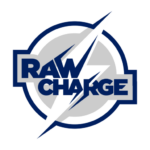It is fitting that a sport that requires some of the most exacting control over one’s body will take time during today’s game to raise awareness for an illness that is about completely losing control.
Tonight is Hockey Fights Cancer night at Amalie Arena, and in honor of the event, the team will wear violet warmup jerseys, use violet tape, and sport a helmet decal to raise awareness for every type of cancer. The coaching staff and broadcasters will wear Hockey Fights Cancer ties. The jerseys, sticks, and ties will all be auctioned off to raise money for hockeyfightscancer.com. Jeff Vinik will also give the Moffitt Cancer Center a $45,000 donation during the game.
Moffitt Cancer Center is one of 47 centers recognized for their comprehensive care of all cancer. They invest time in research and clinical trials, focusing on incredibly important efforts in prevention and cancer control. If you take part in the online auction, your money will go directly toward helping cancer patients find cures, and helping to keep our next generations cancer free.
But why is this important to you, to me, to the Tampa Bay Lightning? (This gets slightly personal.)
Cancer is scary, and it’s everywhere. In my immediate family, my mother-in-law died of complications resulting from lung cancer, and my father-in-law is currently fighting his own battle against the same cancer. My father has a type of bone marrow cancer that causes an overproduction of blood, and my stepmother is a survivor of cancer in the lymph nodes of her neck. I’m a cancer survivor too — I’ve had Non-Hodgkin’s Lymphoma of the duodenum, and am in my fifth year of remission.
I’m up to my eyeballs in cancer, and I know that I’m not the only one.
When I was researching the connection between the Tampa Bay Lightning and cancer, I stumbled across the story of John Cullen, who was a forward with the team in 1997. Very swiftly I realized that we had something in common — we’ve both had Non-Hodgkin’s Lymphoma. Cullen had the disease before the chemotherapy drug Rituximab was was developed, and therefore had to undergo the kind of rough, toxic chemotherapy that I was spared due to advances in medical research.
Cullen’s treatments involved the kind of chemotherapy drug that enacts a total annihilation of dividing cells, and he had to endure it along with nausea-inducing radiation treatment, and finally was forced to have a bone marrow transplant. Cullen tried his best to recover and rejoin the team, but the treatments were too taxing on his body, and he was forced to retire from hockey despite his recovery.
Nowadays, due to advances in cancer research, it is possible for players to go through cancer treatment and recover enough to play again. Olli Maatta, who had a cancerous lump in his thyroid, had it detected early enough to be removed swiftly. He returned to the lineup two weeks after his surgery. Phil Kessel, who was treated for testicular cancer in 2006, recovered enough to hoist the Stanley Cup last season.
There are other connections between the Tampa Bay Lightning organization and cancer. Forward Brian Boyle has been outspoken about his father’s fight with cancer. And as recently as this past season, Dulcie Mishkin, who is married to Bolts radio call announcer Dave Mishkin, successfully ended a year-long battle against breast cancer. Her fight was documented by Joe Smith, as well as her own fundraising efforts, which resulted in $7,000.00 being raised for Making Strides Against Breast Cancer. One phrase from Mishkin stuck in my head, because it rings true:
“You never think it’s going to happen to you,” [Mishkin] said. “But believe me, it can. It happened to me.”

